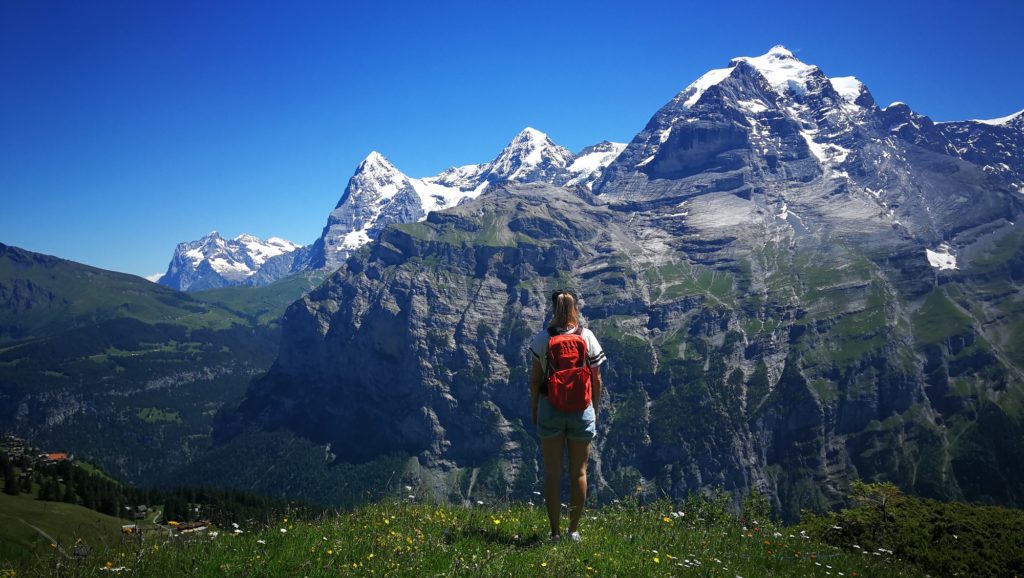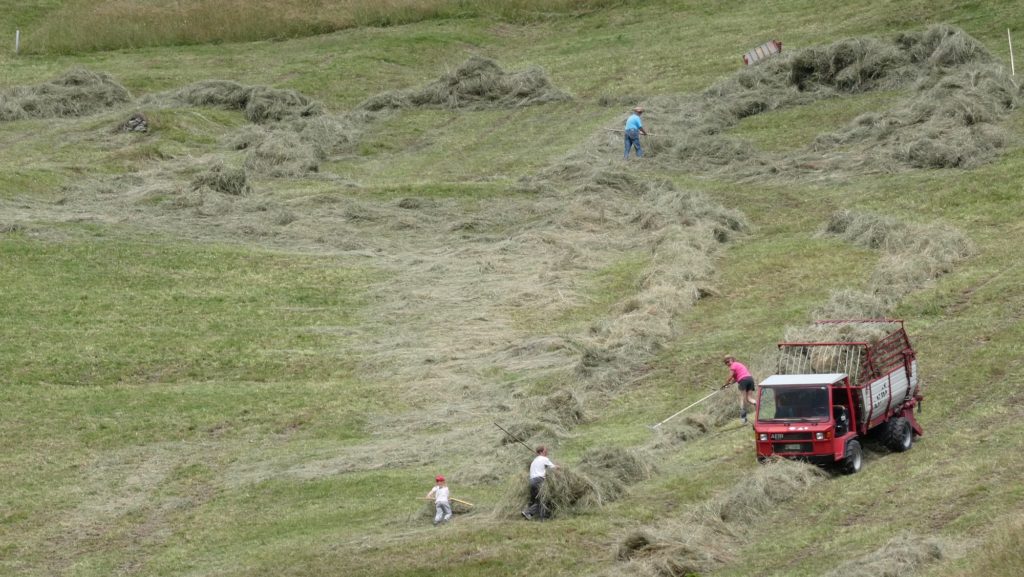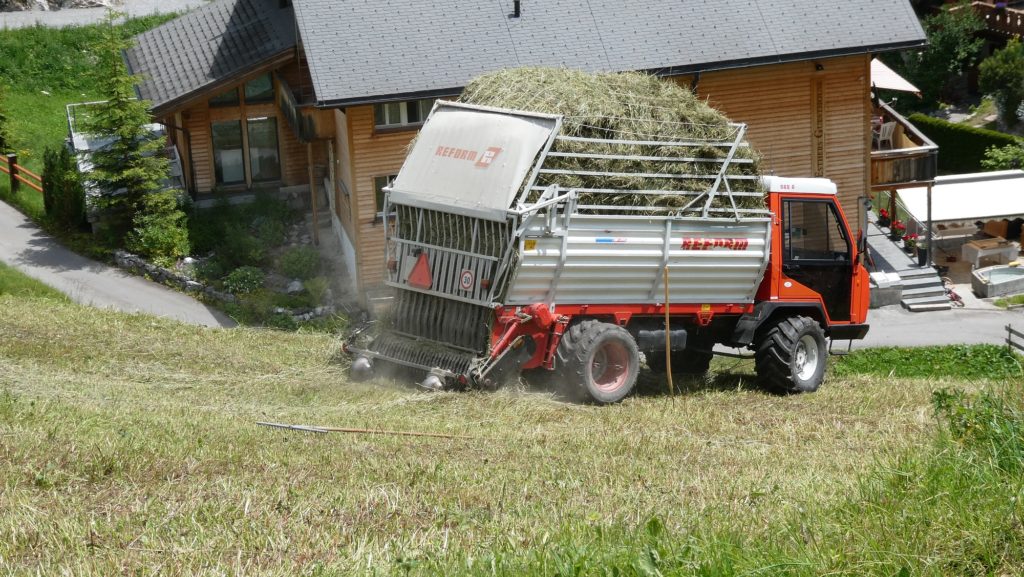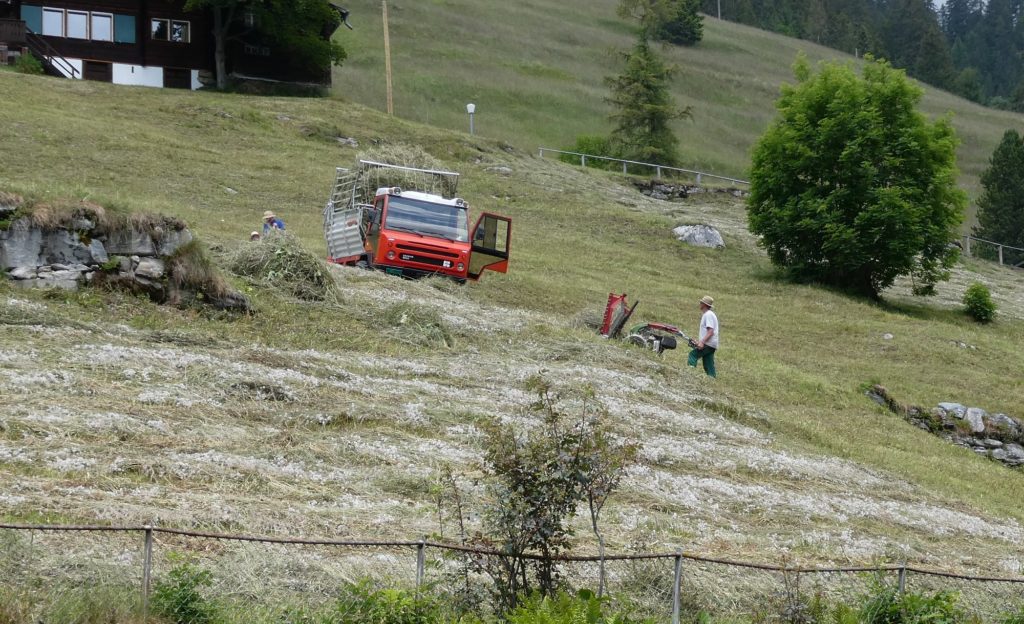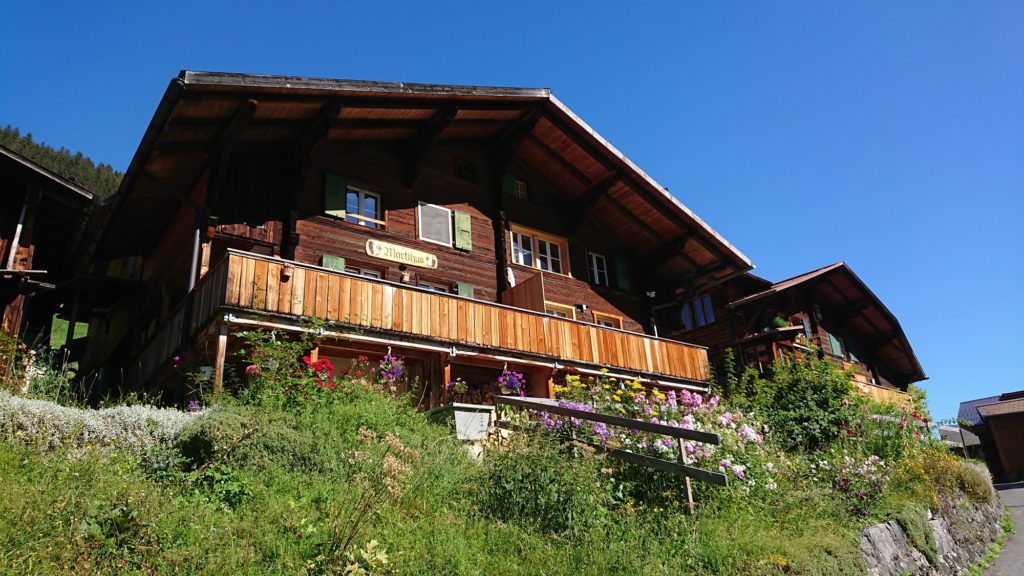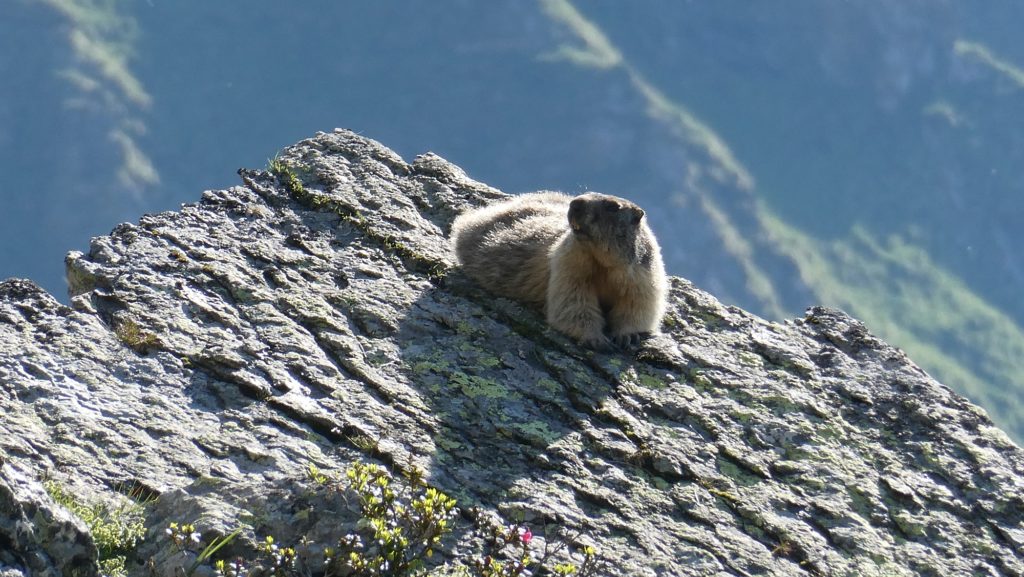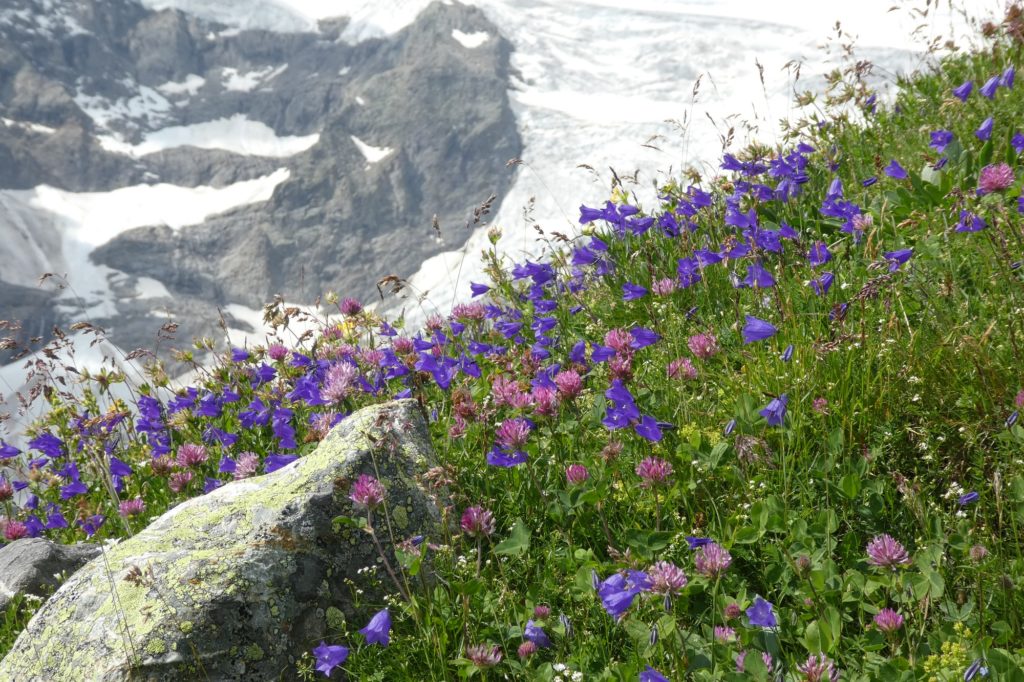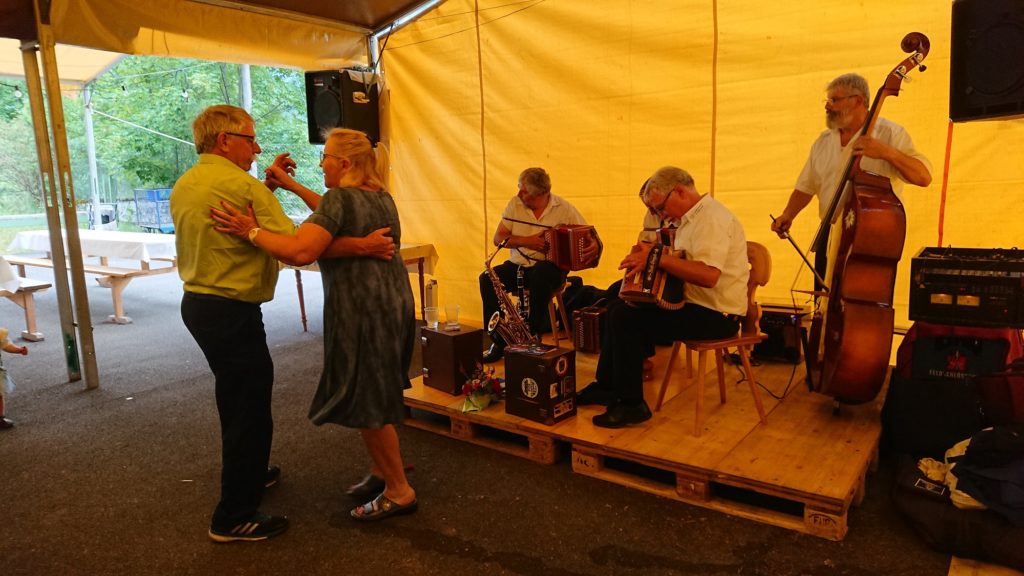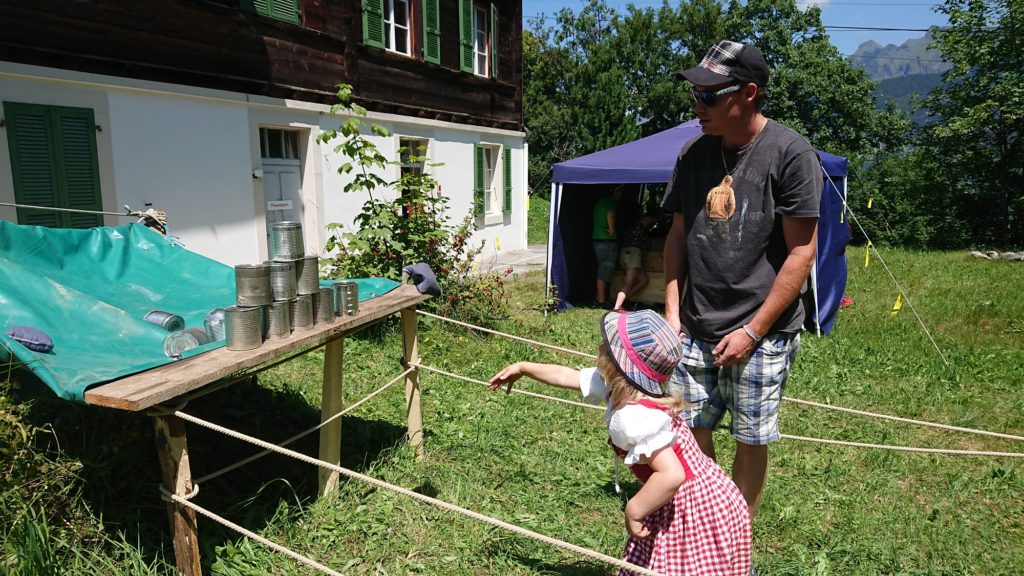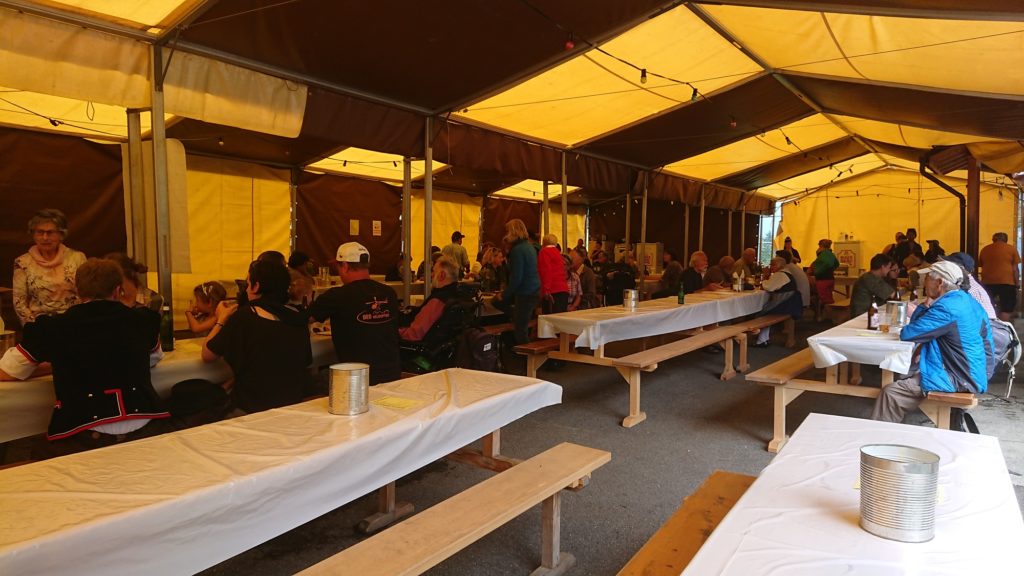On the first Sunday in July the traditional “Skichilbi” takes place in Gimmelwald. The event, which is organised by the ski club, has changed from the original prize-giving ceremony with dancing after the ski race to the actual village festival and was therefore moved to the summer months several decades ago. Folk music, yodelling and a cosy get-together are the main features of the event.
Many people are now enjoying their summer holiday in the area around Gimmelwald but for the locals the hardest time of the year begins. With scythe (and mowing machines where possible) they cut the little grass that can be found on the steep mountainsides. In some remote places the hay used to be loaded into nets and the farmers carried these nets on their shoulders to the nearest hayloft. In every net there were 70-90kg of hay. Nowadays, the hay is taken away from the impassable steep slopes using a different method. Huge amounts of hay are loaded onto enormous plastic sheets and then a strong, deft person takes hold of the plastic and drags it down to the next road where it can be loaded onto a wagon.
After heavy thunderstorms the mountain slopes are very slippery, which proves disastrous for several cows every year. Cows are not so agile. They slip, fall and injure themselves. Slightly injured animals are taken care of on the alp, the helicopter flies the others back to the valley. The animal is flown with a rope about 20 m under the helicopter, hanging in special belts, from the alp to the village. Unfortunately, there are also a few fatal accidents every year due to falls or lightning strikes. The helicopter also transports the dead animals away. Most locals pay an annual fee to the local helicopter company for the rescue card. Holders of a rescue card do not have to pay for the rescue costs not covered by the insurance. This also applies to flights for the rescue of injured, sick or dead cattle to the nearest place that can be reached by another means of transport.

